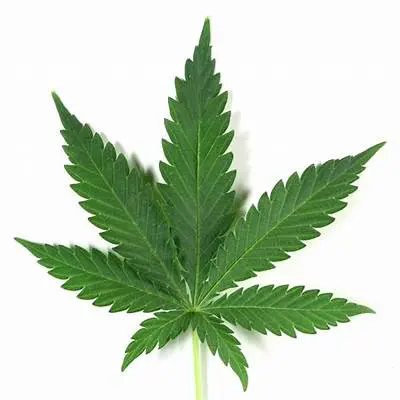Cannabis in Sports: How It Can Help or Harm
Contents
Benefits of Weed to Athletes
Health Risks of Cannabis to Athletes
Does Cannabis Enhance Performance?
Is Weed Allowed in Sports?
The Debate Goes On
Although numerous fitness enthusiasts and athletes consume marijuana, there are questions about its benefits and side effects. Does smoking weed affect cardio, weightlifting, and other exercises? Can the herb improve your capability?
Using cannabis has pros and cons for sportspersons. Many assume that premium CBD seeds may produce marijuana that can enhance your performance at the gym. Others feel the plant could harm you. More information you can find here.
Here are the things to know about cannabis in sports.
Benefits of Weed to Athletes
Whether you’re an amateur or a pro athlete, marijuana may help you in the following ways:
Muscle Spasm Treatment
This condition occurs when your muscles tighten and contract involuntarily. While the problem is usually harmless, it leads to a lot of temporary pain. Overexertion of the body’s elastic fibers during physical activities is one of its primary causes.
While running or working out, you may experience muscle spasms. Studies suggest that cannabis could treat this acute condition. Reports say the herb may speed up recovery after exercises, decreasing the occurrence of involuntary contraction and tightening.
Pain and Soreness Relief
Tetrahydrocannabinol (THC) and cannabidiol (CBD), two of the compounds in marijuana, could relieve pain. These chemical agents interact with the body to lower the soreness you experience after a workout or sporting activity.
Studies show that THC binds with some cannabinoid receptors in the sensory neurons. In response to the interaction, the nerve cells lower pain sensation. The psychoactive compound also makes you euphoric, reducing your level of reaction to the soreness in your system.
Along with using essential sports equipment to heal injuries, consuming weed before a workout could be the secret to alleviating pain.
Inflammation Reduction
After hours at the gym, certain body parts may swell and become red. Inflammation is your system’s means of preventing further damage to the affected areas. Although this defense mechanism often starts the rehabilitation process, it’s often painful.
Clinical investigators note that cannabis may reduce the symptoms of inflammation. CBD is a non-psychoactive compound with anti-inflammatory properties.
The cannabinoid decreases the adhesion of immune cells and pro-inflammatory cytokines, the causes of swelling and redness.
Sleep Improvement
To perform well during a competition or training, an athlete must recover fully from the effects of past workouts. Adequate sleep is one of the factors that promotes rapid and complete healing.
Marijuana is a potential sleep inducer. Studies claim that the THC and CBD in cannabis could make slumber better, longer, and more sound. Athletes who smoke weed may enjoy more restful nights than their non-toking counterparts.
The herb may also subdue dreams and sleep apnea, preventing restlessness. It’s one of the ways marijuana or hemp can impact your fitness.
Health Risks of Cannabis to Athletes
Despite the possible advantages of cannabis to athletes, the plant could have some adverse effects. Frequent weed users may experience psychotic episodes or depression. The herb could also impair coordination, a crucial skill in most sporting activities.
Over the long term, marijuana could increase the risk of certain neurocognitive, respiratory, and cardiovascular disorders. Suffering from any of these conditions may decline your performance.
Since chronic consumption has the most damaging consequences, moderate and casual use could reduce the risks of developing these complications.
Does Cannabis Enhance Performance?
There’s no evidence that the herb gives athletes undue advantages. Several studies claim weed doesn’t make you faster, stronger, bigger, or better at any sport. It also doesn’t increase your endurance.
Since the plant accelerates recovery, many claim it could improve the capability of a sportsperson or fitness freak. This argument doesn’t have compelling scientific support.
On the contrary, numerous researchers propose that cannabis could decrease your performance. It may undermine your physical abilities by increasing your blood pressure and heart rate.
Weed makes you weaker in the gym or during training by promoting exhaustion. The herb could obstruct your body’s arousal system, causing tiredness and drowsiness.
Due to the contradicting reports on marijuana’s effects, it’s difficult to specify how it aids performance.
Is Weed Allowed in Sports?
Sports federations don’t approve of cannabis use. Although the World Anti-Doping Agency (WADA) doesn’t say marijuana improves athletes’ ability, the organization considers it a “substance of abuse.”
Various associations banned athletes from competing due to weed consumption. A notable example is Sha’Carri Richardson, who lost her place at the 2020 Summer Olympics in Tokyo.
Randy Gregory, Josh Gordon, Cory Juneau, and Chris Barnett suffered similar fates in other sporting events. After reviews in 2022, various federations reduced the severity of punishment for offenders.
Sportspersons can use the plant during the off-season, but they should abstain when participating in any international competitions.
The Debate Goes On
The effects of cannabis on athletes remain controversial. While some researchers believe smoking weed affects cardio and other workouts, others propose it’s ineffectual.
Sports science requires more studies on the herb to provide evidence of its short- and long-term impacts.
The only certainty is there’s no place for marijuana in sports. Despite the calls to permit cannabis, many organizations still prohibit its use. This restriction doesn’t stop numerous sportspeople from consuming the plant recreationally.









Cannabis is beneficial in may aspects including sports, but should also be used in moderation.
Cannabis is packed with benefits but should be used with caution.